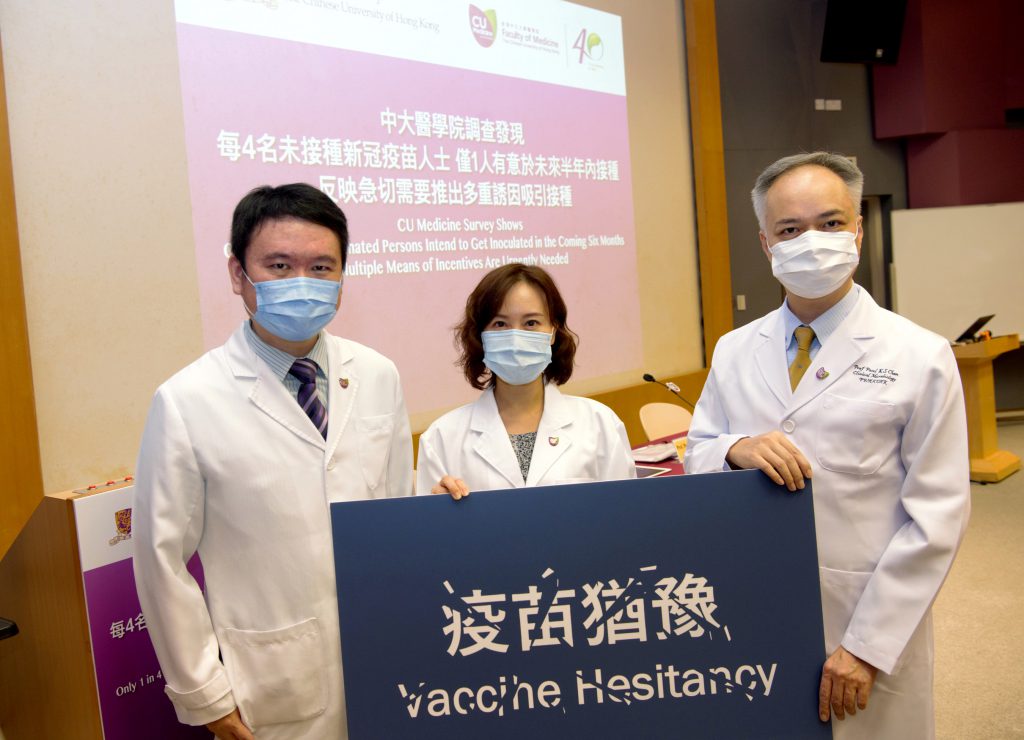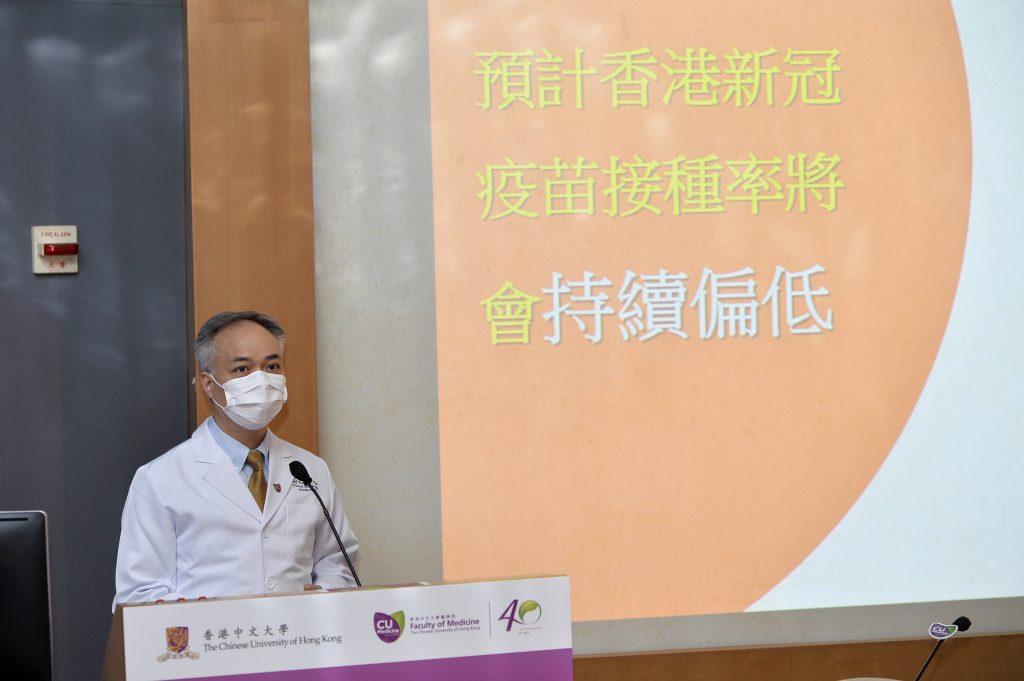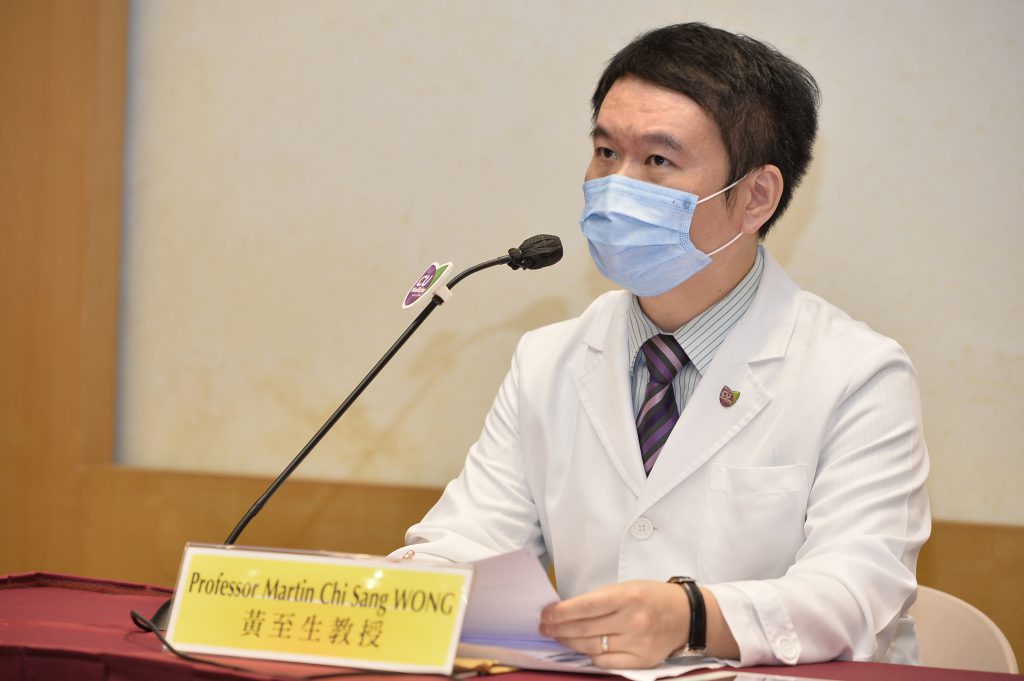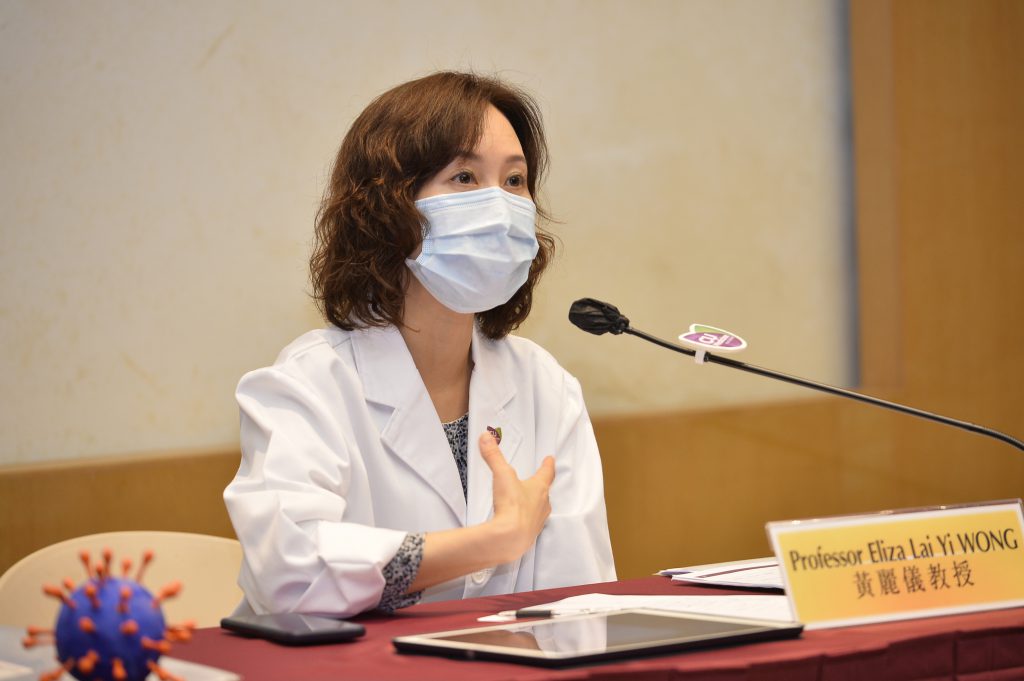CUHK
News Centre
CU Medicine Survey Shows Only 25% of Unvaccinated People Intend to Get Inoculated in the Coming Six Months
“Multiple Incentives” are Urgently Needed
The COVID-19 vaccination scheme in Hong Kong was rolled out three months ago. A recent survey conducted by the Faculty of Medicine at The Chinese University of Hong Kong (CU Medicine) shows that only 1 in 4 unvaccinated people are prepared to receive the jabs in the coming six months. The majority of respondents do not agree that the government should use cash to boost vaccination rate, while multiple incentives, including the relaxation of quarantine and social distancing requirements, as well as travel permit, are needed. Researchers suggest strengthening public education and information dissemination, for example by engaging doctors more extensively to promote vaccination.
Majority of respondents disagree with using cash as an incentive
To understand the COVID-19 vaccine hesitancy in Hong Kong, and explore strategies to improve its uptake, CU Medicine conducted a telephone survey from 23 April to 8 May 2021. 1,200 interviews covering even sex and age distribution were completed.
Key findings of the survey are as follows:
- The uptake of COVID-19 vaccine in Hong Kong is predicted to remain low as only 25% of the unvaccinated population tend to get vaccinated in the coming six months. A revamped strategic vaccination campaign is urgently needed.
- The major reasons to remain unvaccinated are: belief of fatal side effects after vaccination (8.2 of 10 score) despite the government’s attempt at clarification, no confidence in recommendations from the government (7.7 of 10 score) and in the place of vaccine production (7.1 of 10 score), and waiting for a better vaccine (7.3 of 10 score).
- The majority (70%) do not agree that the government should use cash to boost vaccination, and receiving a travel allowance has a low motivating effect (2 of 10 score).
- Among the 8 incentives provided, relaxation of quarantine and social distance requirements, travel permits and holiday after vaccination are relatively better encouragements. However, individual encouragement has low motivation power (each less than a 5 out of 10 score). This shows that “multiple incentives” are needed.
- About half of the respondents agree with targeted compulsory vaccination and the level of acceptance increased with the age of the respondents.
Professor Eliza Lai Yi WONG from The JC School of Public Health and Primary Care at CU Medicine, stated, “Herd immunity is an exit strategy for infectious disease and is only achievable by a joint effort and trust in the community. The majority of Hong Kong people have acknowledged that taking vaccine is the most effective approach to control the COVID-19 pandemic but their concerns regarding adverse effects and comprehensiveness of the information cause them to adopt the ‘wait-and-see’ approach and hinder their willingness to get vaccinated. Thus, it is important to strengthen public education and information dissemination to tackle the hesitancy.”
The survey has also found that recommendation from physicians is the most important driving force, compared with recommendations from family or relatives, friends or colleagues, employers or the government.
Professor Martin Chi Sang WONG from The JC School of Public Health and Primary Care at CU Medicine, suggested, “The proportion of study participants who indicated intention to receive COVID-19 vaccines remains low, especially among the younger respondents. Doctor recommendation is the most significant factor influencing vaccine uptake. We urge doctors to engage more extensively to clarify misconceptions. More comprehensive information oriented towards different sectors of the population on vaccine effectiveness and its adverse effects should be provided to clear their hesitancy.”
Professor Paul Kay Sheung CHAN, Chairman of the Department of Microbiology at CU Medicine, concluded, “Vaccine hesitancy is a global public health issue, and each society has its unique underlying reasons. From this study, we have identified the unique barriers and possible solutions for Hong Kong. The main reason for refusing vaccination is that the citizens have insufficient information, and there is a lack of confidence in vaccine manufacturers and the government. The availability of a sufficient amount of vaccine doses and vaccine choice in Hong Kong is a gift that we should treasure. But this treasure can only be realised with a joint effort. We hope the incentive plans introduced by the government and private sectors recently can boost the vaccination rate.”

A recent survey conducted by CU Medicine shows that only 1 in 4 unvaccinated people are prepared to receive the COVID-19 vaccine in the coming six months. The survey also finds that multiple incentives, including the relaxation of quarantine and social distancing requirements, as well as travel permit, are needed in order to boost the vaccination rate.
(From right) Professor Paul CHAN, Chairman of the Department of Microbiology, and Professor Eliza WONG and Professor Martin WONG from The JC School of Public Health and Primary Care, at CU Medicine.
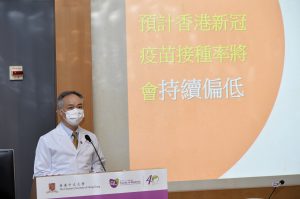
Professor Paul CHAN points out that vaccine hesitancy is a global public health issue which also leads to a low vaccination rate in Hong Kong. He hopes the incentive plans introduced by the government and private sectors recently can help improve the situation.
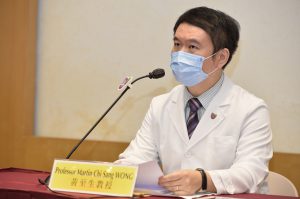
Professor Martin WONG suggests doctors to engage more extensively in public education on COVID-19 vaccination. For example, information package customized for different sectors of the population should be provided to meet their specific needs.
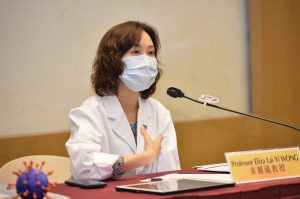
Professor Eliza WONG states that the majority of Hong Kong people have acknowledged that getting inoculated is the most effective approach to control the COVID-19 pandemic but their concerns regarding adverse effects and comprehensiveness of the information lead them to adopt the “wait-and-see” approach and undermine their willingness to get vaccinated.


